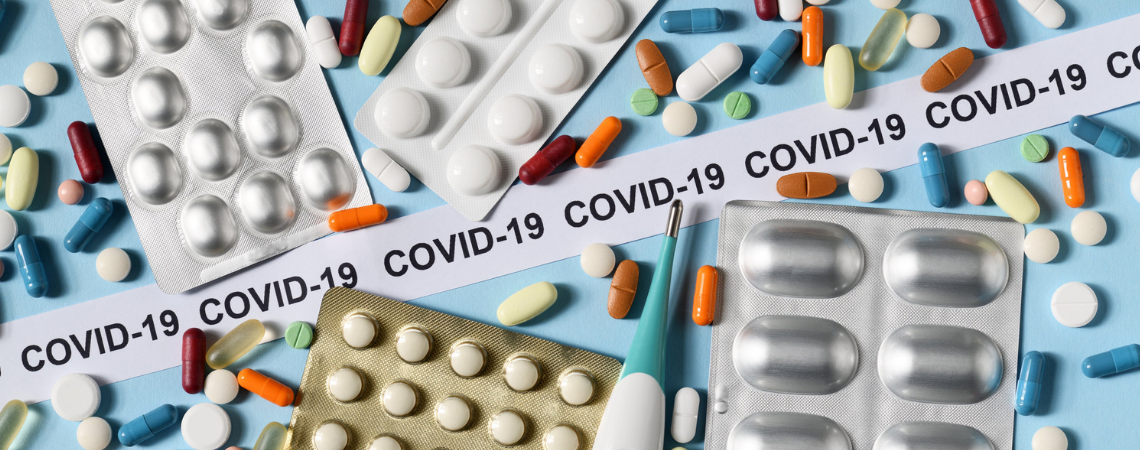The SARS-CoV-2 virus pandemic has undoubtedly affected various areas of our lives, not only our private lives and interpersonal contacts, but it has also firmly affected the areas of lives directly related to work and career. Even pharmaceutical industry directly connected with medicinal products production and responsible for medicinal products marketing was strongly affected by COVID-19 pandemic situation.
From the regulatory point of view, the crisis caused by the COVID-19 pandemic has led to many problems related to registration procedures of medicinal products, post-registration variations proceeding and renewal procedures. This article, based on ,,Practical guidance of the CMDh for facilitating the handling of processes during the COVID-19 crisis” (May 2020; CMDh/418/2020, Rev.1), will briefly discuss new regulatory opportunities directly related to regulatory affairs issues, enabled, by Co-ordination Group for Mutual Recognition (MRP) and Decentralised (DCP) procedures – Human (CMDh) response to mitigate the effects of the current pandemic.
Timelines for the assessment of ongoing applications
Importantly at the beginning, according to the CMDh guideline, all registration procedures for medicinal products, which are directly connected with COVID-19 treatment, or which are considered as critical due to the COVID-19 pandemic, will be prioritized and expedited.
Furthermore, in certain cases, start or restart of procedure for medicinal products registered in European procedures may be delayed. Application for procedure delay may be submitted by the Applicant, but also by Reference Member State (RMS) or Concerned Member States (CMS) if this is in the interest of the Applicant.
What is more, CMDh enabled two more possibilities of timeline delay for DCP/MRP/RUP, renewal and post-registration type II variation procedures – “freezing” and “rolling back”.
“Freezing” shall be understood as the timetable holding at the same procedure Day as it is, and then restarting it as soon as the responses will be received, or as soon as the RMS Assessment Report will be finalized. Such solution may be crucial in case of absence of some documents required for the registration procedure of the medicinal product, for example lack of GMP certificate – due to the pandemic, GMP Inspection may be hindered, which will result in the impossibility of GMP certificate issuance.
Of course, due to the restrictions caused by COVID-19, period of validity of the GMP certificates was automatically extended until the end of 2021. However, the above-mentioned problem still exists and affects the manufacturers who have never been audited and therefore do not have a GMP certificate, the validity of which could be extended.
“Freezing” is envisaged to be used shortly before the end of a procedure, therefore in the final phase of registration procedure.
“Rolling back” shall be understood as bringing the procedure back to the validation phase or bringing back the procedure to clock stop period, with the usual timeframe of handling responses in the clock stop. Such solution is envisaged to be used immediately after the procedure start or procedure restart and before Day 120 of the registration procedure.
Both: “freezing” and “rolling back” of the procedure timetables may be applied due to the unexpected and COVID-19-related capacity issues within the RMS. Moreover, when it is not possible for Applicants to submit responses due to the COVID-19 pandemic, above-mentioned solutions shall be also applied. What is important, the Applicant is obliged to inform the RMS with preserved time period of a necessary interruption of the procedure. Furthermore, the reason of not submitting the responses to the competent Authority shall be duly justified and justification must be related to the COVID-19 pandemic.
The Applicant and RMS should stay in constant contact, closely communicate and discuss registration strategy for specific medicinal product and together decide the most suitable solution.
How can MAHs make use of “freezing” and “rolling back” in practice?
As already mentioned, the possibility of applying one of the regulatory solutions, i.e. “freezing” and “rolling back” must be always agreed with the RMS, so in any case the first step for the Marketing Authorization Holder (MAH) should be to contact the RMS in order to obtain the approval for the application of any of the solutions.
Undoubtedly, “freezing” will be, in many cases, more beneficial solution for MAHs. For example, when due to the COVID-19 pandemic situation, some of Module 1 documents are missing – “freezing” may allow further evaluation of the substantive documentation (Modules 2-5) despite formal deficiencies, provided that RMS and CMS consent are obtained.
According to the „Procedural advice on Validation of MR/Repeat-use/DC Procedures“ (June 2019; CMDh/401/2019) the RMS can start the procedure although the non-validation issues have not been solved on Day 0. The applicant still has the duty to rectify missing documents by Day 10 for MRP/RUP or Day 50 for DCP, at the latest. If the Applicant fails to submit in due time, the RMS will bring this matter to the Applicant in the next Assessment Report. So, in fact there is possibility to submit missing documents on Day 40 for MRP/RUP or Day 106 for DCP, at the latest. However, if due to the pandemic, this non-validation issue is still not solved – the Applicant is not able to meet the above condition.
It is a very unfavorable situation for the MAH, when the procedure cannot be continued for the reasons beyond its control – then the “freezing” could be useful. In practice, in many cases, lack of the Module 1 document will not be critical for the further evaluation of quality, clinical and non-clinical documentation. The CMDh provides Agencies and MAHs with the regulatory solution that can minimize procedural delays. The MAH has the opportunity to ask RMS for further dossier evaluation, as the “freezing” allows the procedure to be stopped at any final stage – before issuing the End of procedure (EoP) letter, but for example after receiving all comments on the substantive dossier. When the missing document is available, MAH can unfreeze the procedure.
“Rolling back” could be a great help in all situations where the Applicant is unable to submit key documents / additional studies etc., without which no further and complete assessment can be made. Please note that before the pandemic situation, clock stop period in the registration procedure could be extended only once. Nowadays, due to the pandemic situation, one-time extension of the clock-stop may not be enough – by using the “rolling back” tool MAH gains much more time to gather the required documentation.
Timeline for the assessment of ongoing renewal procedure
In accordance with Article 24 of Directive 2001/83/EC, a Marketing Authorisation (MA) is valid for 5 years and may be renewed on the basis of a re-evaluation of the benefit / risk balance by the competent Authority. Once renewed, the MA shall be valid for an unlimited period of time unless the competent Authority decides to proceed the renewal with one additional five-year time period. MAHs are generally obliged to submit the renewal application on time, in accordance with the timetable.
However, due to the COVID-19 pandemic and in order to meet the legal deadline, it is acceptable for the Applicant to submit only the renewal Cover Letter and renewal Application Form (without any Annexes) to the RMS and CMS. It should be stated in the Cover Letter, that the complete renewal dossier is delayed due to COVID-19 pandemic situation and will be submitted to the competent Authority as soon as possible but, at the latest, within 6 months from the date of submission.
The MAH is obliged to use the usual submission route – renewal dossier shall be submitted via CESP platform in eCTD-format. The CMS will be informed of the delay in the renewal procedure due to COVID-19 pandemic situation by the RMS. The RMS is obliged to include the procedure in CTS.
Once the complete renewal application is submitted to the competent Authority, the Applicant is obliged to indicate in the Cover Letter that incomplete application has been submitted previously due to COVID-19 pandemic. Additional documentation should be similarly submitted via CESP platform in a new eCTD sequence.

The crisis caused by the COVID-19 pandemic has led to many problems related to the registration procedures of medicinal products, post-registration variations proceeding and renewal procedures. As the response to those difficulties, CMDh enabled new regulatory opportunities described in the ,,Practical guidance of the CMDh for facilitating the handling of processes during the COVID-19 crisis” (May 2020; CMDh/418/2020, Rev.1). Above-described regulatory strategies and new possibilities enable mitigation of the effects of the SARS-CoV-2 virus pandemic and prevent an economic crisis.
Have you encountered procedural problems resulting from COVID-19 pandemic that prevent efficient procedures completion? If so, please do not hesitate to contact us!
Interested in Regulatory Affairs? – check our regulatory affairs services: Medical Writing – preparation of medicinal product registration dossiers, Environmental Risk Assessment (ERA), CTD 3 Module – Quality, OTC-Switch or Sunset Clause.
Didn’t find what you are looking for – search the entire range of Regulatory Affairs services we offer: pre-authorisation, rmedicinal product registration process, post-authorisation.


